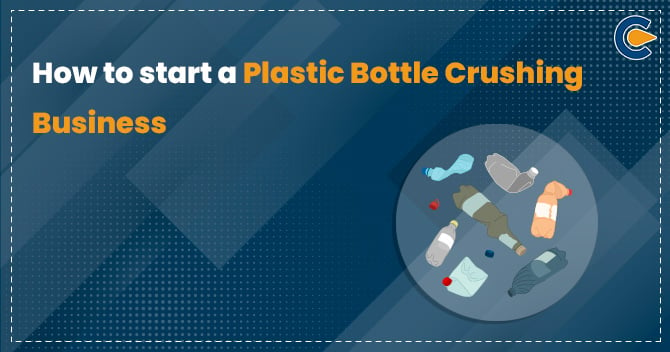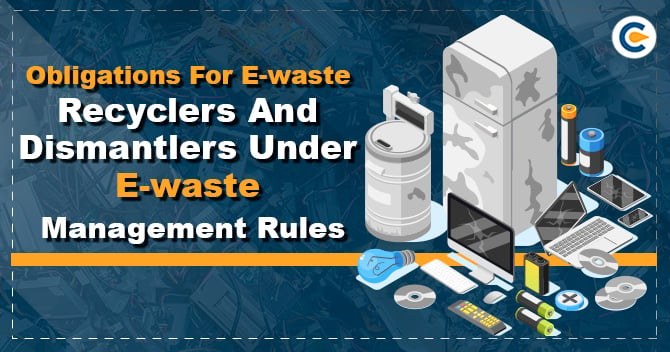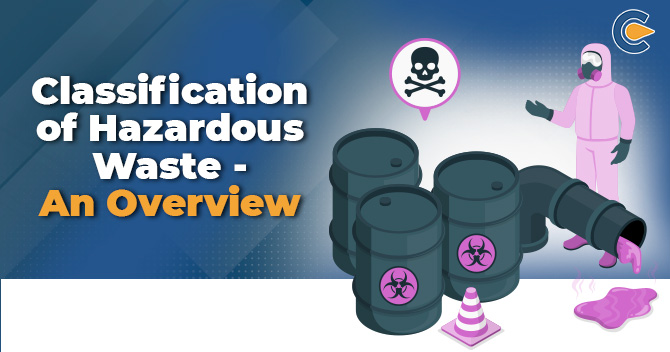Single-use plastic bottles (PET bottles) are one of the most common forms of plastic we see around us. We see their use in packaging items like water and carbonated beverages, medicines, oils, etc. PET bottles account for 33% of the total carbonated soft drink market. PET plastic offers high tensile strength and good barrier properties. PET bottles are also being used in other markets, including toiletries, cosmetic ranges, spirit miniatures, and PET aerosols for cosmetic and pharmaceutical applications.
Need for Plastic bottle Crushing Business
Plastic Bottle Cruising businesses use large hydraulic machines to press the empty PET bottles into bales or bundles to make them easy to transport. A Plastic crushing Business is usually accompanied by plastic grinding or shredding units. The plastic bottle crushing unit can either crush the bottles into bales and supply them to grinding units or grind or crush them themselves as per their capacity and the demand by manufacturers. Nowadays, Plastic crushing machines are used not only in waste management units but are now being deployed in cities as waste disposal points encouraging the consumer to discard PET bottles responsibly and get rewarded in return.
Advantages of setting up a plastic bottle crushing business
- Empty and discarded PET bottles are collected, sorted, cleaned, shredded, and made into ‘flakes,’ which are then used to produce various products like polyester fibre that have a variety of applications. Crushed Plastic Bottles can also be converted to fabrics for use in the clothing and upholstery industry, fillings in pillows etc. Recycled PET is also used to manufacture PET straps, monofilament, sheets etc.
- Recycling PET plastic by crushing and grinding can be more profitable than recycling other plastic waste. Looking at the value chain of PET recycling, one can be sure that PET bottles can generate comparatively more returns than other plastic waste. PET bottles are widely used and discarded, light and easy to collect and transport and have broader applications in the manufacturing businesses. For instance, a local waste collector/ kabadiwalla gets ₹ 15-20 per kg of bottles. After segregating the waste, the waste collector can charge up to ₹ 35 per kg for PET bottles from the traders/ recyclers for clear PET bottles. These crushing and shredding units can use this segregated plastic, making PET flakes that can later be used to make other valuable products like spinning it into fibres. PET flakes can generate a 50 to 100% margin compared to baled plastic, depending upon the quality.
Steps involved in Plastic Bottle Crushing Business
Sorting and cleaning of Plastic Bottles
As the collected plastic bottles reach the crushing unit, these plastic bottles are put through manual, semi-automatic and automatic sorting and cleaning processes. All PVC labels on the bottles are removed. Any metal components that might have slipped in (like caps, rings, springs used in spray bottles etc.) are diligently removed.
Washing of PET bottles
Washing PET bottles before bailing and shredding increases the quality of the finished product and, therefore, its price. Shredded PET plastic enters the washing line as PET flakes. A friction washer machine can perform cold water cleansing of light contaminants such as liquids and paper. The next step is drying the material stream and separating other contaminants, for example, dust and sand. This is done in a mechanical dryer. Forremoving adhesives from labels and meeting food grade standards, another washing stage may be required. In a continuous PET hot washer, the flakes are soaked in hot water washing solution mixture, followed by a friction washer where the material is rinsed. The PET flakes separate from the lighter plastics such as PE/PP from bottle caps in a sink-float tank. Lastly, a thermal dryer can be installed that dries the product.
Crushing
The bottles are crushed into cuboidal shapes called bales, each weighing 120-140 kgs or as required. Baling of plastic bottles makes transportation of crushed plastic bottles easy and cost-effective. A regular baling machine can bale around 0.7-1 ton of PET bottles in a day. The workforce required is also minimal. On average, a team of 10 sorters. balers and packers can produce 1 ton of plastic bales
Grinding/ Shredding
If grinding or shredding is required, the plastic bottle is fed into the shredder/ grinders. After shredding, PET flakes are obtained, which have staple fibre application in the textile sector and can be used to manufacture carpets, blankets, clothing, and other textile applications
Transportation
The finished product will need transportation to the manufacturers or other dealers on demand. The plastic bottle crushing business can take up this process to increase profitability. Otherwise, a transportation partner can be involved.
How to Start a Plastic Bottle Crushing Business
Preparing a business plan:
A sound business plan is a prerequisite for any business. To start a plastic bottle crushing business, pre-operational planning like market research, deciding the location, estimating the cost involved, sourcing of raw material, the demand of the product, the cost involved, and learning about the legal and technical compliances are necessary elements
Pollution NOC from SPCB/PCC
After developing a sound business plan, necessary certification and permissions must be obtained. Registration of a plastic waste recycling unit requires authorisation under the Air (Prevention and Control of Pollution) Act 1981 and the Water (Prevention and Control of Pollution) Act, 1974[1].
Choosing the machinery and sourcing of labour
After the legalities of the business have been addressed, the machines needed for the plastic crushing waste business and the workforce needed can be procured. Machines required for a plastic bottle crushing business are the PET bottle baling machine, PET bottle Scrap washer and PET bottle shredder.
Marketing of the product
If a plastic bottle crushing business is also equipped with plastic shredding and grinding, the target market for the product increases. While baled plastic can sell anywhere between ₹ 32-35 per kg, shredded PET plastic can fetch upto ₹ 49 to 52 per kg or even more as per the quality. Their demand is also high as compared to baled plastic. Marketing of the product can be done both online and offline means. Advertising one’s product on online platforms can ensure wider reach and, therefore, a bigger market.
Conclusion
The plastic bottle crushing business has a huge market due to the massive use of PET bottles. The fact that the Plastic bottle crushing business does not require highly sophisticated machinery and technological know-how is also an added advantage for anyone who wants to enter the business. According to the government’s estimate, only 25-30 of the produced PET plastic is recycled. The Fibre industry, which utilises the products from a plastic bottle crushing business, is one of the fastest-growing end-use sectors and a significant user of recycled PET in India. More than 40 manufacturing units use recycled PET as raw materials in India. Therefore there is a good demand for recycled PET. Advances are made in technologies to develop new ways to use recycled plastic in our day to day lives, and with that, the demand for recycled PET plastic is also increasing.
Read our Article:Plastic Waste Collection Fee in Kerala











